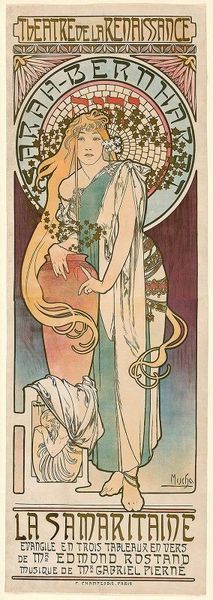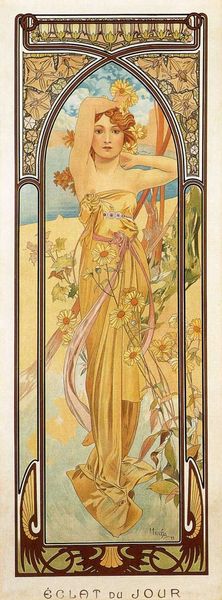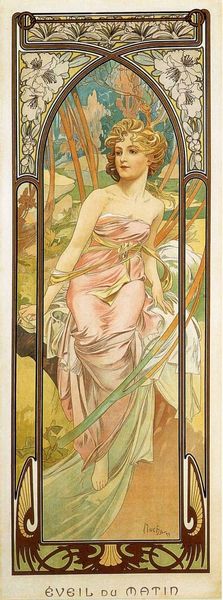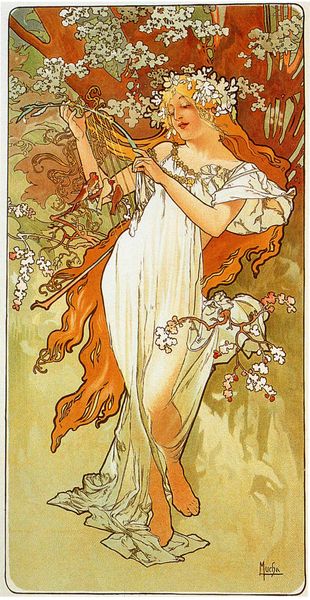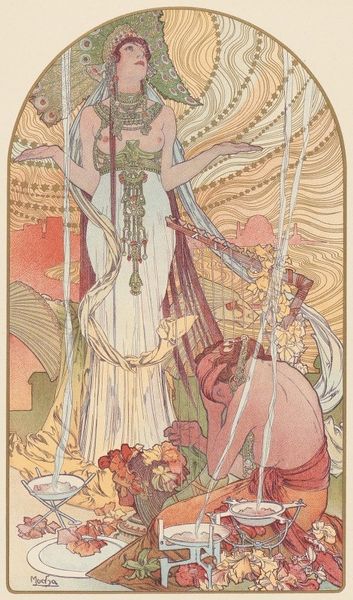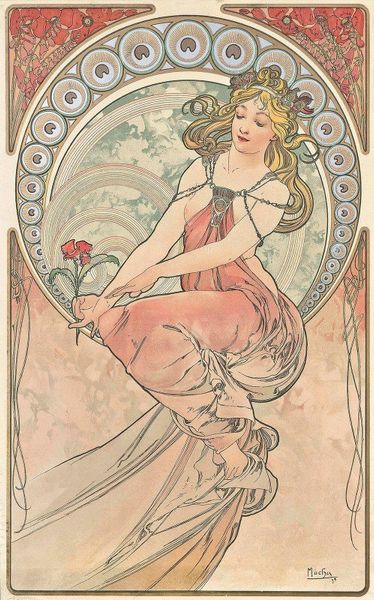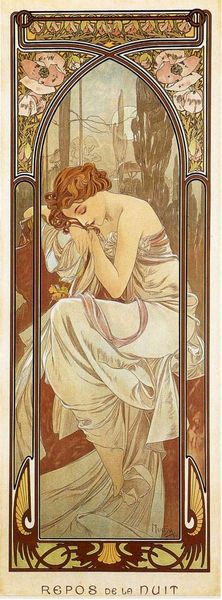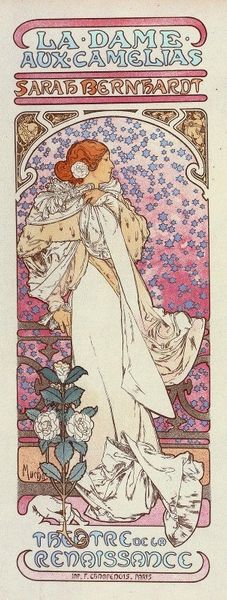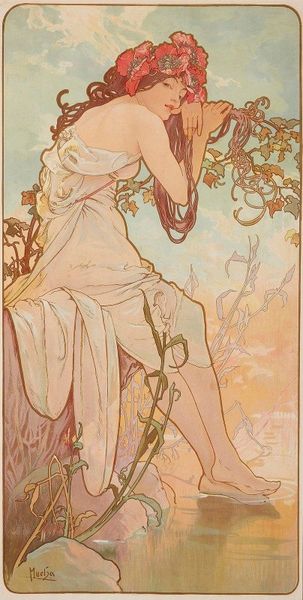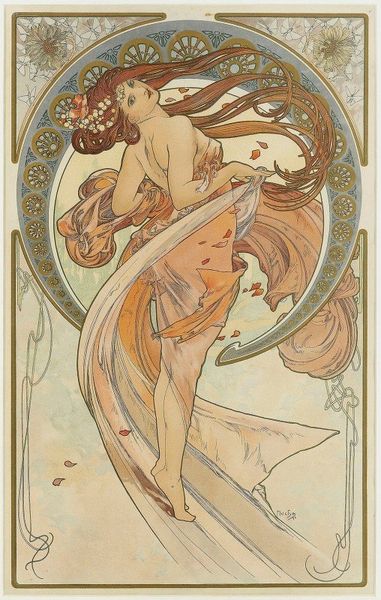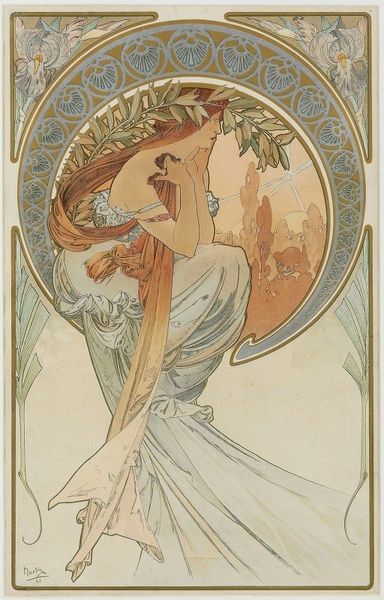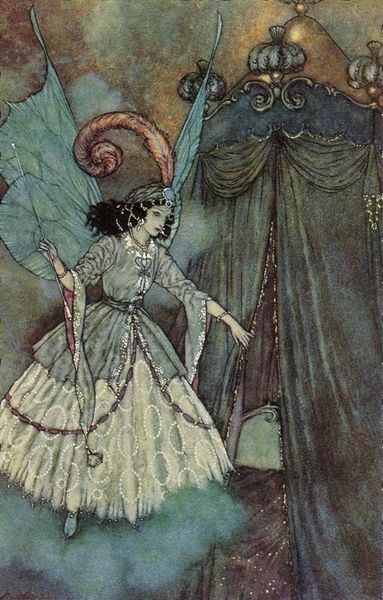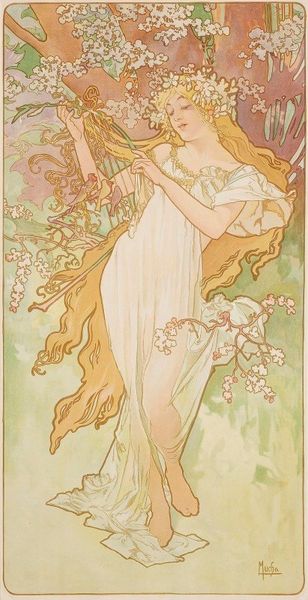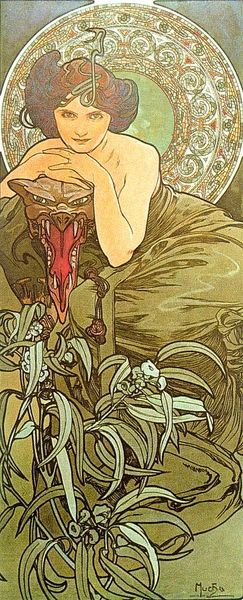
painting, watercolor
#
portrait
#
art-nouveau
#
allegory
#
painting
#
fantasy-art
#
watercolor
#
naive art
#
symbolism
#
painting art
#
erotic-art
Copyright: Gustav Adolf Mossa,Fair Use
Gustav Adolf Mossa made this watercolor painting of Salome sometime during his career. The femme fatale was a popular trope in the late 19th and early 20th centuries, and Mossa's image plays into many of the standard themes. Here, Salome is a cold, sexualized woman, a destroyer of men. She holds a sword to her lips, the blood dripping from its blade. Behind her are roses in full bloom, each bearing the head of a man she has seduced and destroyed. The little girl with the glasses lying at her feet is, symbolically, Salome herself as a child, condemned from a young age to be a heartless monster. Mossa was from Nice in France, a place with a complex history, having been part of Italy until 1860. It's likely that Mossa was commenting on social structures of his time, offering a conservative critique of modernity and the supposed decline of traditional values. To understand this painting, we can research the artist's life and the cultural context in which he was working. By looking at the historical sources, we can better understand the meaning of this powerful and disturbing image.
Comments
No comments
Be the first to comment and join the conversation on the ultimate creative platform.
